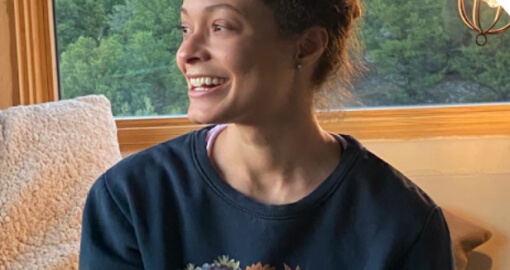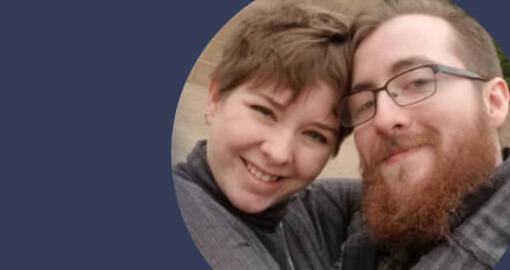Written by Shannon,
Brightside Health
8 Minute Read

Medically reviewed by:
Erin O'Callaghan, PHD
Director of Therapy
10 Minute Read

When you begin to lose interest in everything — your hobbies, passions, and entertainment sources — it becomes difficult to function.
This loss of interest is known as anhedonia — a main symptom of depression. Loss of interest can be an overwhelming and far-reaching symptom that impacts your relationships with friends and family, your sexual health, work and school productivity, and hobby enjoyment.
Anhedonia and loss of interest are thought to be caused by low serotonin levels. If you find that you’re just not able to enjoy life anymore, you are not alone.
In this guide to anhedonia, you’ll learn coping skills for those times when you find you’re losing interest in everything. Let’s get into it.
Want to speak 1:1 with an expert about your anxiety & depression?
What does it mean when you suddenly lose interest in everything?
If you aren’t sure whether this all applies to you, then it may be helpful to examine what we mean by this feeling of a loss of interest.
Healthline explains that anhedonia (a loss of interest) can have several different presentations: “Social anhedonia is often defined as an increased disinterest in all aspects of interpersonal relationships and a lack of pleasure in social situations. Physical anhedonia is an inability to feel tactile pleasures such as eating, touching, or sex.”
While not all researchers agree with this categorization, it may help you to better understand some symptoms related to loss of interest, like:
- A lack of relationships
- A withdrawal from social interactions
- Reduced interest in hobbies, sports, or other activities
- A loss of interest in physical intimacy
Loss of interest is a symptom of depression as well as other mental health conditions.
Symptoms of Major Depressive Disorder
Loss of interest in things you once enjoyed is often a main symptom of depression. About 6% of adults in the United States have had at least one major depressive episode, so you are far from alone in experiencing this. So, if you don’t yet have a diagnosis, but are also experiencing other common symptoms of depression, it may explain why you’re losing interest in everything or everyone.
Some other very common symptoms of depression to keep an eye out for include:
- Sadness, hopelessness, emptiness, or tearfulness
- Outbursts of anger, irritability, or frustration
- Anger or irritability over minor occurrences
- Loss of interest in activities you used to enjoy
- Insomnia, over-sleeping, or other sleep disturbances
- Prolonged tiredness and lack of energy such that small tasks require a lot of effort
- Loss of appetite which may lead to weight loss
- Increased appetite or cravings which may lead to weight gain
- Anxiety
- Restlessness
- Slowed thinking, speaking, or body movements
- Feelings of worthlessness or guilt
- Fixation on past failures or self-blame
- Difficulty thinking or concentrating, making decisions, and remembering things
- Frequent or repeated thoughts of death or suicide
- Suicidal actions
- Unexplained physical ailments such as headaches or back pain
Depression can manifest in different ways for different people, so even if you are experiencing other symptoms not on the list above, you should not rule out depression as underlying your loss of interest until you speak with a professional.
How to reconnect with the things you once loved
If depression is at the root of the loss of interest you’re experiencing, medication and therapy are the most effective way to get back to feeling like yourself. In addition to your treatment, here are some tips that may help you get back on your feet and return to the things you once loved:
- Practice self-care: If you are not taking care of yourself, meaning both your body and your mind, your passions and interests will suffer. Practicing self-care can help you feel better about yourself which may revive your motivation. This could be as simple as blocking out 15 minutes to read that book that’s been sitting on your nightstand, or it might be taking a walk around the neighborhood every day after lunch. It might be something a little more involved like setting aside a few hours every Friday night to give yourself a little spa treatment or making sure you’re getting a full night’s rest. Self-care is all about making sure you have what you need physically, mentally, and emotionally to set yourself up for health and happiness.
- Differentiate between a loss of interest and avoidance: Lack of interest and avoidance are two very different things, and distinguishing between the two may be helpful. When you feel yourself not wanting to do something you used to enjoy, ask yourself whether you have a loss of interest in the activity or negative feelings about the activity. Negative feelings indicate avoidance and may be a sign that you have new, negative associations with the activity. If this is the case, a professional therapist can work with you to try to identify the source of these associations.
- Find a friend with similar hobbies: Buddying up with somebody who shares your hobbies may bring the motivation, inspiration, and support you need when you’re losing interest in everything.
- Take a class or join a club: Joining clubs or classes may help you reconnect with your passion, and resolve your loss of interest by giving you an opportunity to learn, enhance skills, and meet others who share your interests.
- Take small steps toward what you once enjoyed: If you are feeling a loss of interest, try a less extensive version of activities you usually enjoy. Even though you might not get the rush of an all-day hike, or you don’t quite have that craving to pull out the mixing bowls and start measuring out ingredients, it’s worth taking small steps to even minimally engage in activities you once loved. Maybe that means going on a walk in the park instead of packing up for an all-day adventure, or popping a premixed cupcake batter in the oven instead of baking a Swedish Princess Cake from scratch — working to revive that joy by taking baby steps toward your once-favorite activities can help you slowly start enjoying those pastimes again.
- Think about why you loved it in the first place: Remembering the reasons you used to enjoy a certain activity or hobby may help you move past your lack of interest and get back in touch with your passions and abilities.
Mindfulness and self-care techniques that can help combat a loss of interest
When you are feeling a loss of interest in everything, practicing certain methods of self-care and mindfulness can help to cultivate a more positive mood and feel like yourself again:
- Practice gratitude: It can be easy to focus on all of the things in your life that are going wrong, which may make you feel like you are losing interest in the things you used to love. Taking some time to practice gratitude for the things that are going right can help tune up your mindset. You can do this in the form of journaling —writing down what you’re thankful for every day — or you can call or text a list of people with a little thank you.
- Stay connected with your loved ones: When you lose interest in the things around you, you may feel isolated. It’s important to stay connected with those you love and those who bring light into your life.
- Try mindfulness techniques: Practicing mindfulness techniques like meditation, yoga, and deep breathing can help you get in touch with your body and mind and find peace. Calming the noise around you can help you identify the root causes, or otherwise combat, your loss of interest.
Getting professional help: where to turn
If you think your loss of interest is a symptom of depression, or even if you aren’t sure, self-care alone might not be enough. You may need to seek professional help.
Speaking to a professional can help you understand your symptoms and determine whether depression is causing your lack of interest in things.
Brightside specialists can help you understand, then resolve your symptoms. We offer personalized treatment plans and unlimited access to caring providers who stay by your side at every step.
Start by filling out our complimentary online assessment which allows us to better understand your needs and match you with a provider. Whether your treatment plan entails medication, therapy, or a combination of both, Brightside providers are here to help you right from the comfort of your home.
The bottom line
Losing interest in things that you used to love can be an extremely disheartening symptom of depression, making it difficult to get back in touch with your passions and relationships.
Practicing mindfulness, trying 30-day challenges, finding a buddy, or returning to your roots may help for a while, but you may also need a professional to fully get back to feeling like you.
Sources:
https://www.mayoclinic.org/diseases-conditions/depression/symptoms-causes/syc-20356007
https://whatsyourgrief.com/reconnecting-with-your-passions/
https://www.helpguide.org/articles/mental-health/cultivating-happiness.htm



















